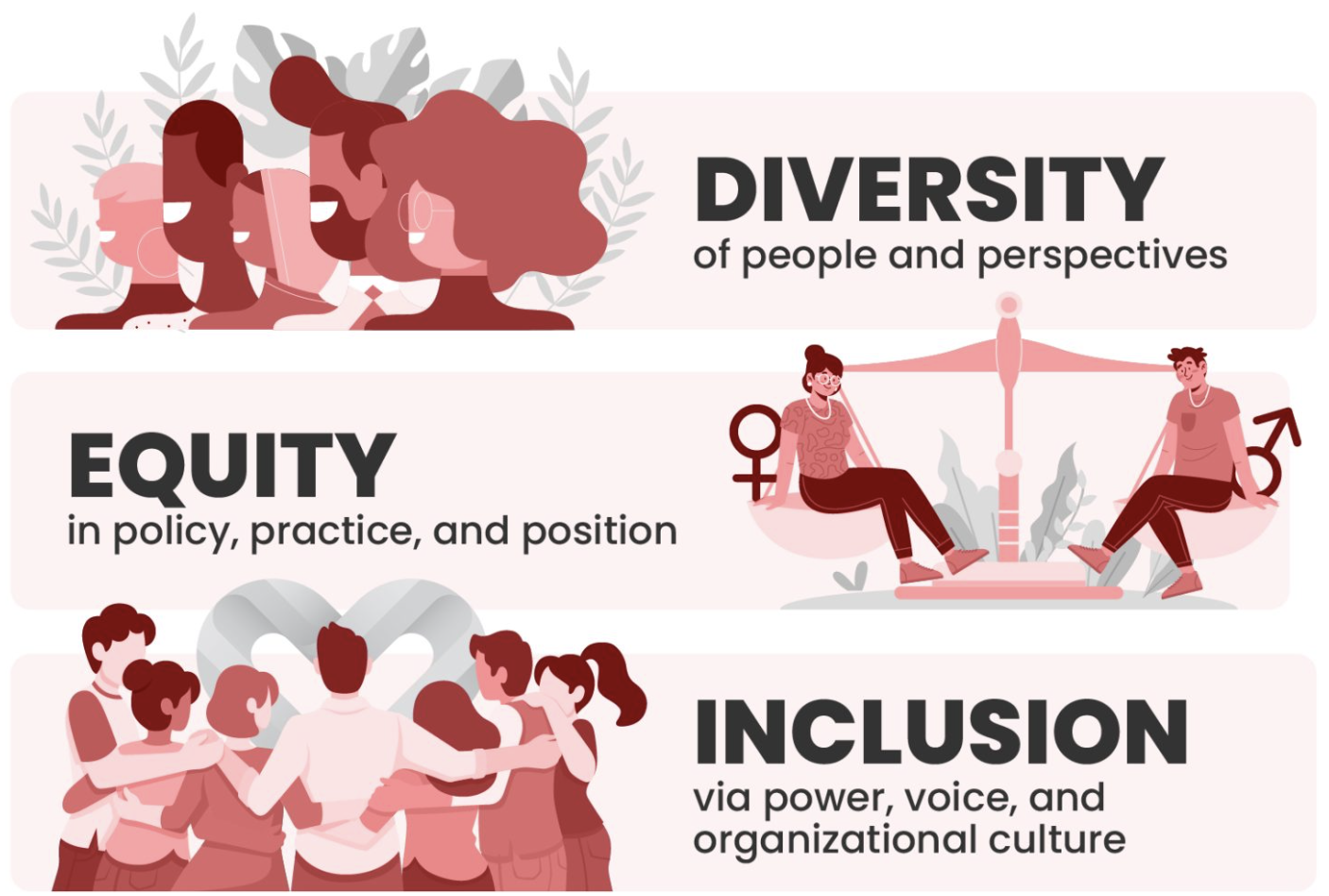Beyond Compliance: Embedding DEIB for Sustainable Success in 2025
Introduction
The workplace of 2025 demands more than compliance with diversity policies—it calls for the integration of Diversity, Equity, Inclusion, and Belonging (DEIB) into every facet of corporate culture. DEIB is no longer a “checkbox” for HR teams but a strategic imperative for organizations striving to innovate, attract top talent, and build sustainable success.
Employees and leaders alike want workplaces that prioritize employee belonging, foster inclusive leadership, and tackle unconscious bias. This blog explores why DEIB is essential, how it benefits your organization, and actionable steps for embedding these principles through tailored training.
The Business Case for DEIB
Embedding DEIB into your workplace delivers measurable business results, including:
Enhanced Employee Engagement
Employees who feel a sense of belonging are 56% more productive and 50% more likely to stay with their company.
(Source: Harvard Business Review)Increased Innovation
Diverse teams are 70% more likely to capture new markets and develop innovative solutions.
(Source: Forbes)Stronger Financial Performance
Companies in the top quartile for diversity are 36% more likely to exceed industry profitability benchmarks.
(Source: McKinsey & Company)
How DEIB Training Creates Impact
DEIB training transforms your organization by addressing key areas:
1. Tackling Unconscious Bias
Unconscious biases shape decisions, from hiring to promotions. Training helps employees:
Recognize and understand implicit biases.
Learn strategies for mitigating bias in decision-making.
Create equitable hiring and evaluation practices.
Example: A hiring manager might unconsciously favor candidates with similar backgrounds to their own. DEIB training provides tools to evaluate candidates objectively, ensuring fairness.
(Source: Equality and Human Rights Commission)
2. Promoting Inclusive Leadership
Leadership sets the tone for workplace culture. DEIB training equips leaders to:
Foster open communication across diverse teams.
Model empathetic leadership that builds trust.
Drive accountability for inclusion initiatives.
Case Study: A manager at a global company learned to navigate cultural differences effectively after participating in DEIB training, leading to improved team collaboration.
(Source: Deloitte)3. Intelligent Automation of Training Management
3. Building a Culture of Belonging
Belonging goes beyond inclusion—it ensures employees feel safe and valued. Training focuses on:
Developing team-building practices that include all voices.
Creating psychological safety for employees to express ideas without fear of judgment.
Implementing feedback systems that encourage active listening.
(Source: Harvard Business Review)
4. Enhancing Cultural Competency
With global workforces becoming the norm, cultural competency is critical. Training helps employees:
Understand and respect cultural differences.
Navigate international markets with sensitivity and insight.
Leverage diverse perspectives for strategic advantage.
(Source: Society for Intercultural Education, Training, and Research)
The Ripple Effect of DEIB in the Workplace
The benefits of a robust DEIB strategy extend far beyond employee satisfaction:
Improved Brand Reputation: Companies known for diversity attract top talent and loyal customers.
Reduced Turnover: Employees in inclusive workplaces are more likely to stay, reducing recruitment costs.
Enhanced Decision-Making: Diverse teams consider broader perspectives, leading to better outcomes.
(Source: Glassdoor)
Implementing DEIB Training in Your Organization
Ready to embed DEIB principles into your corporate culture? Here’s how to start:
Conduct a DEIB Audit: Identify gaps in your current practices and measure your organization’s inclusivity levels.
Develop Tailored Training Programs: Focus on the specific needs of your workforce, from unconscious bias to inclusive leadership.
Engage Leadership: Ensure managers and executives champion DEIB initiatives to drive organization-wide commitment.
(Source: AIHR)
DEIB is a Journey, Not a Destination
As organizations prepare for 2025, those that integrate DEIB into their DNA will lead the way in innovation, engagement, and success. At Path 2 Peak Training, we specialize in creating actionable DEIB training programs tailored to your organization’s unique needs.
Let’s Build a Better Workplace Together.
Visit www.pathtopeaktraining.com to learn how our DEIB programs can transform your workforce.






